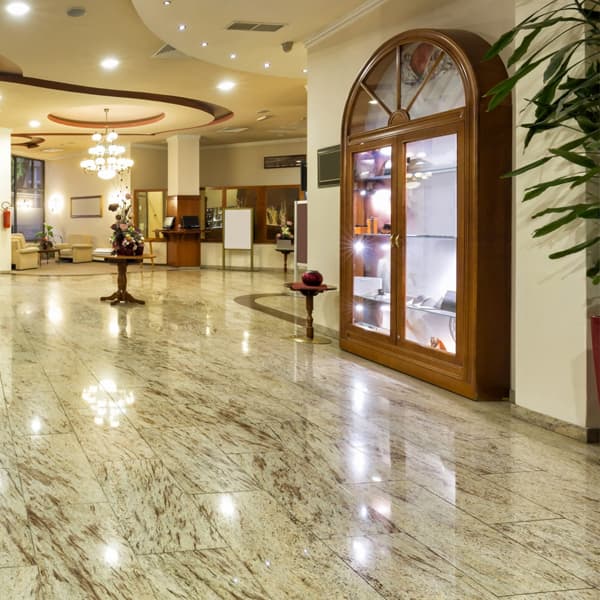Marble has been used since ancient times for construction because it is a solid and durable material. Therefore, the installation of a marble floor in your home will not only improve the appearance but will also increase the value of your luxury property. However, proper maintenance of your marble floors is essential to extend their life and maintain their visually stunning appearance. The dos and don’ts of cleaning and maintaining marble floors are as follows:


Marble Floor Cleaning
The best way to clean and polish a marble floor is to hire a specialist because they know and understand how marble is formed naturally. Marble is a natural stone composed of seashell deposits containing the chemical compound calcium carbonate. So, cleaning products with acids should never be used on marble floors because the acid will dissolve the calcium carbonate and turn your marble into sand. Vinegar is also a famous cleaning agent for floors and countertops, but it can be harmful to clean marble because it contains acid.
The best way to clean marble floors is to use a soft cloth dipped in a specific cleaning solution. When dealing with difficult stains, avoid using abrasive cleaners, as they will cause more damage to the marble. After cleaning the entire floor, allow it to dry for a few hours before rinsing it with clean water.
Crush a regular stick of white chalk into a powder for quick marble floor polishing. Then, using a damp washcloth, rub the chalk powder into the marble. After a minute, rinse the marble with clean water and thoroughly dry the floor with a rag.
Polished Marble Floors
Marble is one of the most beautiful natural stone surfaces used for decorative and architectural purposes, but the polished surface is prone to scratches. To protect your polished marble floors from scratches, you can take several precautions with your furniture and cleaning routines. First, furniture should be placed on a rug or carpet, or even purchase furniture pads and place them on the legs of your chairs or sofa to avoid scratches on a marble floor. Furniture pads come in various sizes, and once applied to the furniture legs, the furniture can be safely slid across the marble floor if necessary.
You can also avoid scratching your marble floors by using a mob to sweep and clean the marble floor instead of using a broom, as it can create bristles on the surface of your luxury floor. When mopping the floor, it is preferable to use a sponge dipped in clean water rather than a traditional mop. Submerge the sponge in clean water and wring out as much water as possible before wiping the entire floor lightly. You’ll have to repeatedly dip the sponge back into the water to rinse away the dirt. After cleaning the floor, it must be thoroughly dried to remove all water and moisture, as moisture can damage the marble surface.
Removing Stains from Marble Floors
Like most types of floors, Marble floors are susceptible to stains, and these tips will help you remove common stains with household items. However, regardless of the stain, it is critical to act quickly and not allow the stain to set on the floor.
Stains caused by sugar: Sugar stains, such as soda or juice, can be removed with a damp sponge and a couple of drops of liquid dish soap. Scrub the stain away with a sponge and then rinse the area with clean water.
Stains from Food: When food spills on your marble floor, clean up as much as possible before scrubbing the stain with a sponge dampened with warm, soapy water and some hydrogen peroxide. After rubbing the stain, thoroughly rinse it with water and dry it.
Maintenance Marble floors
It is critical to hire someone with the necessary experience and expertise in the natural stone treatment and the appropriate equipment for effective and best restoration service. Marble floors can add a lot of beauty and value to your home, but knowing how to clean marble floors is essential for preserving their life and beauty.
Contact a natural stone professional who specialises in marble surface maintenance, such as Ashton Marble Restoration, this natural stone specialist is located in London, UK.
















